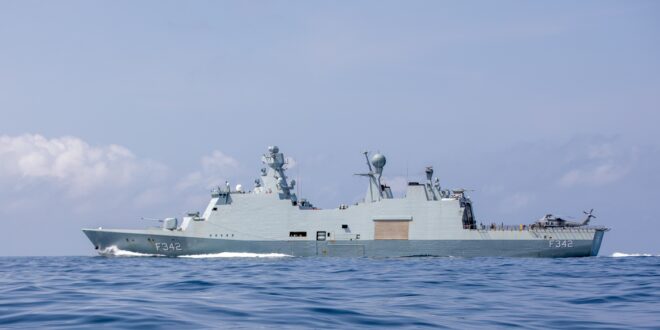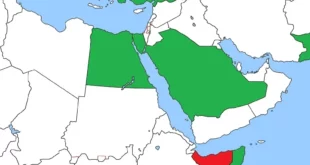Piracy off West African in 2021 declined dramatically – almost by half compared to the previous year – but the region still remains the world’s piracy hotspot, according to Dryad Global.
In its annual report for 2021/22, the maritime risk company stated that “the precipitous decline in piracy throughout West Africa in 2021 saw overall incidents of piracy and maritime crime decline by 56% compared to 2020. Incidents of actual and attempted attacks and vessels being fired upon dropped by more than 85%. The number of vessels boarded throughout the region fell by 54%. Incidents of vessels being boarded, and crews kidnapped declined by 60%.”
Overall incidents of offshore piracy in West Africa may have reduced throughout 2021, yet the core onshore components that drive piracy, and threaten vessels and crews operating within the region remain unaltered, Dryad said.
“The integrity of the declining trend will be conditional upon long term political investment and continued focus upon the maritime domain, which is less than assured in a country as complex as Nigeria. It would be disingenuous at best, and dangerous at worst, to interpret the decline in piracy in 2021 as indicative of a fundamental or lasting change brought about by any one state or initiative. Claims of radically reduced risks within such a short timeframe and calls for the ending of war risk premiums are premature. Whilst counter-piracy efforts in 2021 are to be commended, they require sustained investment, both politically and financially, with onshore investment arguably of greater importance than offshore assets.”
In explaining the decline in West African piracy throughout 2021, Dryad points out Nigeria’s $195 million Deep Blue Project (DBP) has been touted as one of the main reasons. However, Dryad does not see the launch of the DBP as causing the reduction, but merely correlated in time with the reduction.
“If the DBP’s assets were deployed into an environment of frenetic piratical activity, it would be logical to expect a high number of piratical incidents to continue, albeit marked by an increasing number of successful counter piracy operations, involving vessel interdiction and/or arrests. An example of this behaviour was seen when the Russian navy destroyer, the Vice Admiral Kulakov, responded to and disrupted the boarding of the MSC Lucia in October 2021.”
According to Dryad, piracy throughout the Gulf of Guinea continues to be attributed to pirate action groups operating from within the southern Niger Delta. Lasts year there was little improvement in the core socio-economic conditions throughout the disparate communities of Delta states that fuel piracy. The situation in the region has been further compounded by the impact of the COVID pandemic on national resources and international assistance. “Without a tangible improvement in onshore conditions that create legitimate and sustainable alternatives to piracy it is extremely difficult to see that there has been or will be any substantive deterrence against individuals’ intent to participate in piracy,” Dryad stated in its report.
“The threat of piracy is increasingly becoming a region-specific threat confined to West Africa,” Dryad analysis concluded. “Contrastingly, in Southeast Asia, where piracy was previously more commonplace, zero incidents of piracy were recorded in 2021.”
Beyond piracy, maritime crime, which primarily involves thefts at anchor or in port, is the most prolific threat facing mariners, accounting for 76% of all incidents. Incidents that are the result of overspill from regional or state conflict account for only 4.5% of all incidents – the rare occurrence of these incidents does little to deter the significant global media reporting they attract.
The downward trend in West African piracy has continued this year, with the International Maritime Bureau recording just seven piracy incidents in the Gulf of Guinea in the first quarter of 2022.
“Sustained efforts are however needed to ensure the continued safety of seafarers in the West African region that remains dangerous, as evidenced by the hijack of a product tanker off the coast of Ivory Coast on 24 January, during which all 17 crew were taken hostage. Reports of armed robberies have also been received within the anchorage waters of Angola and Ghana,” the IMB statement said.
On the drop in piracy incidents off West Africa, particularly the Gulf of Guinea, the IMB notes no reported crew kidnappings in the first quarters thanks to the efforts of maritime authorities in the region.
“This is a welcome change compared to 40 crew kidnappings in the same period in 2021. The efforts of regional and international navies also resulted in a reduction of reported incidents from 16 in the first quarter of 2021 to seven over the same period in 2022. The IMB Piracy Reporting Centre urges coastal response agencies and international navies to continue efforts to ensure piracy is permanently addressed in these risky waters.
“The threat to innocent seafarers remains and is best exemplified with a recent attack where a Panamax sized bulk carrier was boarded by pirates 260 nautical miles off Ghana on 3 April. This illustrates that despite a decrease in reported incidents the threat of Gulf of Guinea piracy and crew kidnappings remains,” the statement reads.
Speedy reaction by the IMB’s Piracy Reporting Centre saw regional maritime authorities and navies with assets deployed in the area respond. An Italian Navy warship with on board helicopter reacted saving the crew and ensuring the carrier could proceed to a safe port under escort.
 Eurasia Press & News
Eurasia Press & News



